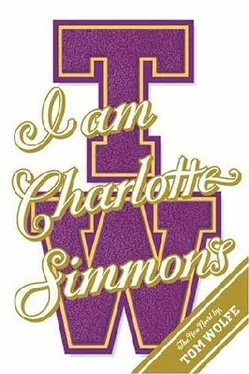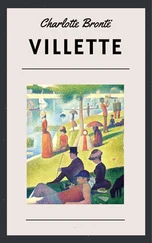“They can suspend me for a semester.”
“Well, that wouldn’t be the end of the world, anyway.”
“The hell it wouldn’t! It’d be the end of my world,” said Jojo. “The next semester is the basketball season! The postseason games are in March! The NCAA tournament! Everything!”
“So what are you going to do?”
The hangdog sag of the supplicant was in his face. “You can help me.”
“Me?”
He shook his head yes. “Remember when I came to you and said I wanted to turn myself around academically?”
“Yeah—yes.”
“And you said I oughta start by studying Socrates? Remember how you told me that?”
“Yes…”
“I did that. I switched into Philosophy 306, the Age of Socrates.”
“You did? You really did that?”
“Yeah, and it’s the hardest course I ever took. I could spend the whole week reading and still not read enough. Mr. Margolies. He’s a serious fuh—guy. I don’t know what he’s saying half the time, and I don’t think the others do, either, but nobody’s got the nerve to put his hand up and say, ‘What’s agon mean?’ or ‘Why do you say Socrates was the first philosophical rationalist?’ What the fuh—what’s that supposed to mean? I actually go to the library after class and look up stuff. I never even went in there before, except for a couple of times Adam took me there. I always had the feeling I was standing in there blinking and everybody was laughing at me. Now I go in there because I don’t want to just sit there with my mouth open in Margolies’s class. I don’t know if I can even pass the course, but you know what? I’m sorta proud of myself.” Jojo’s face lit up for the first time. “Do you know the difference between Socrates’s ‘universal definitions’ and Plato’s ‘Ideas’? You don’t—right? Well, I…do.” Jojo had the smile of a child proud of an accomplishment. “Plato thought ‘Ideas’ exist, actually exist in the world, independent of human beings, meaning no matter whether anybody uses them or not.”
Charlotte nodded and said, “That’s very good, Jojo.”
Then his face darkened. “I know it’s good. That’s what makes this damn ‘judicial officer’ shih—stuff such a ball-buh—makes me so mad. It was after that paper Adam wrote for me that I started…turning around—and being a student—and taking a lotta shih—catching a lotta hell for it. Coach started yelling at me when I told him I was gonna take the Socrates course, and then he started laughing, like it was a joke, me thinking I could pass a course like the Age of Socrates, and then, in practice, he started calling me Socrates, fuh—effin’ Socrates this and effin’ Socrates that. It’s like…he’s calling me a retard, right in front of everyone. But I’m putting up with all that. I’m gonna stick with Socrates. The hell with Coach. Socrates said you have to look to yourself for ‘virtue and wisdom.’ That’s what he said, ‘virtue and wisdom,’ and I’m living by that now. And so it’s now, after I’ve become a different person, it’s now they’re siccing this like…cop on me, over one fuh—one freaking paper from before! There’s Before Socrates and After Socrates, B.S. and A.S.—” He barked a rueful laugh. “That don’t sound right, but you know what I mean.”
Charlotte, but not Jojo, could see the panorama of the crowd in Mr. Rayon. Students at the tables and in the Thai food line were turning their heads to look at the two of them. At first Charlotte was embarrassed. But now she saw their little table in this dim, dismal corner the way all those celebrity-hungry and celebrity-gossip-hungry, prurient swiveled heads saw it. There was the great Go go Jojo with his hulk stretched halfway across the table and his huge head thrust practically into the face of that—pretty?—girl and talking ever so earnestly and intently. Who is she? Something that intense—a tête-à-tête was what it was, if any of them knew the term. Who is that girl? The thought made Charlotte smile in spite of herself.
“—know what I mean,” Jojo was saying. “What’s funny?”
“Why do you say don’t?” said Charlotte. “Nobody ever told you what the third-person singular of the verb to do is?”
Petulantly: “You think that’s funny, don’t you—and I’m trying to tell you something serious. Since you asked—everybody on the team says don’t—he don’t, she don’t, it don’t.”
“Why?”
“I don’t know. If you say he doesn’t, everybody thinks you’re fronting.”
“Why do you care about that?”
“I don’t…anymore,” said Jojo. He smiled a tight, grim little smile. “Not A.S.”
“After Socrates,” said Charlotte.
“Fucking A,” said Jojo. He held his palms up in front of his face in mock defense. “It’s just an expression, just an expression. It don’t—doesn’t mean anything.” This time he smiled a little smile of resignation, as if resigning himself to the way the world was. “That’s why I need you. You’re the only person who can testify for me.”
“Testify?”
“If they take me in front of this panel. You’re the only person who can say something like I came to you on such and such a day, after I handed that paper in and before Quat started breaking my—giving me a hard time.”
“You think they’ll believe you? You went to a freshman for advice?”
“That’s the way it happened! Will you do it? Will you testify for me?”
Charlotte didn’t know what to say. Jojo—a trial—testify?—questions?—whose?—something told her it was a mess well worth avoiding. But she was already experiencing the guilt she would feel if she refused.
“Yes.” Flatly, in a put-upon voice.
Jojo lurched still farther across the table and grasped both her small hands with his big hands and held them as if he were making a snowball. He squeezed them.
“Thank you! I owe you one! Good girl! Good stuff!”
His big smile was not so much a smile of happiness and relief as happiness and victory, as if he had talked her into something. That made her uneasy. She didn’t much like this “good girl, good stuff.” It was patronizing. Did he think he had put one over on her?
On the other hand…the way it must have looked to everybody in the room…Jojo has a real thing for this girl. She looks so young! Who is she?
“Did anybody ever tell you you’re beautiful? And different? You’re not like the other girls on this campus.”
It being Monday night, Hoyt and eight or nine other Saint Rays had gravitated to the library couches and easy chairs, cracked leather upholstery and all, to chill, i.e., drift through the evening in as aimless and effortless a manner as possible, bolstered by the presence of others like themselves. Naturally ESPN SportsCenter was on the big plasma TV screen. Hot colors and orangey slices of postadolescent flesh flared in a Gatorade commercial…and now four poorly postured middle-aged white sportswriters sat slouched in little low-backed, smack-red fiberglass swivel chairs panel-discussing the “sensitive” matter of the way black players dominated basketball.
“Look,” the well-known columnist Maury Fieldtree was saying, his chin resting on a pasha’s cushion of jowls, “just think about it a second. Race, ethnicity, all that—that’s just a symptom of something else. There’s been whole cycles, every generation, whole cycles of different minorities using sports as a way out of the ghetto. Am I right? I mean, like boxing. A hundred years ago or whatever it was, you had the Irish, John L. Sullivan, Gentleman Jim Corbett, Jack Dempsey, Gene Tunney. Then here came the Italians: the Rockys—Marciano, and Graziano—and Jake LaMotta and so on. Or take football. Way back, you had the Germans, like Sammy Baugh. So now you get to basketball. In the 1930s and 1940s, you know who dominated professional basketball long before the African Americans? Jewish players. Yeah! Jewish players from the Jewish ghettos of New York! Oh, there was—”
Читать дальше










